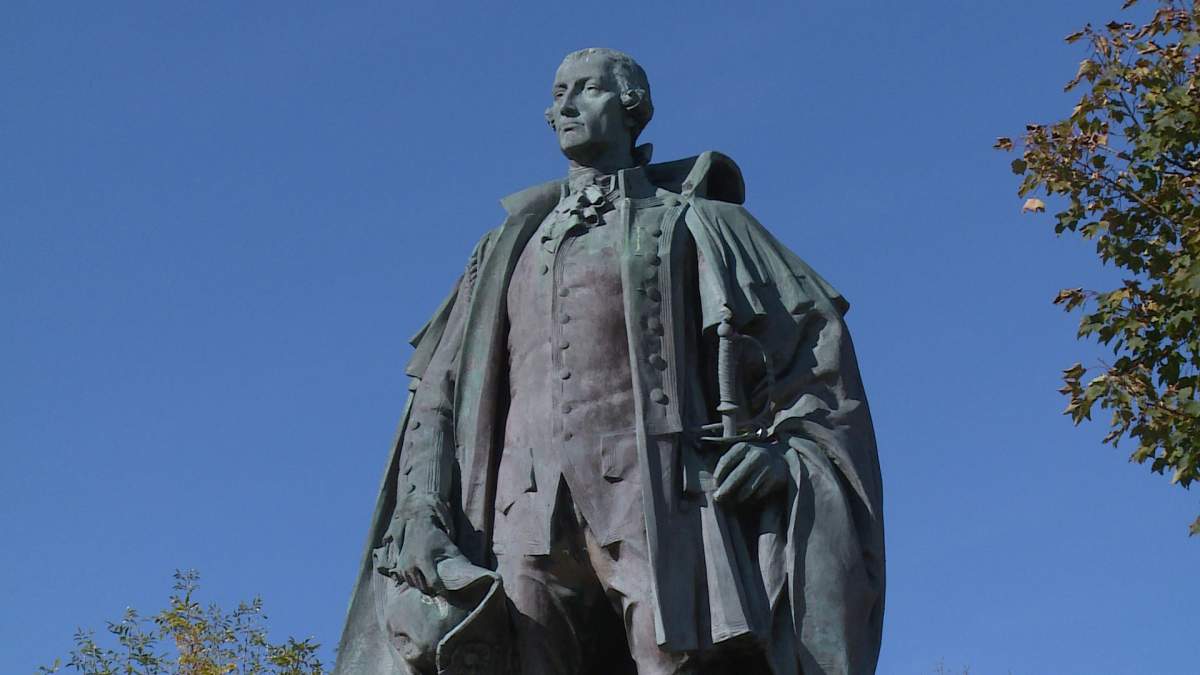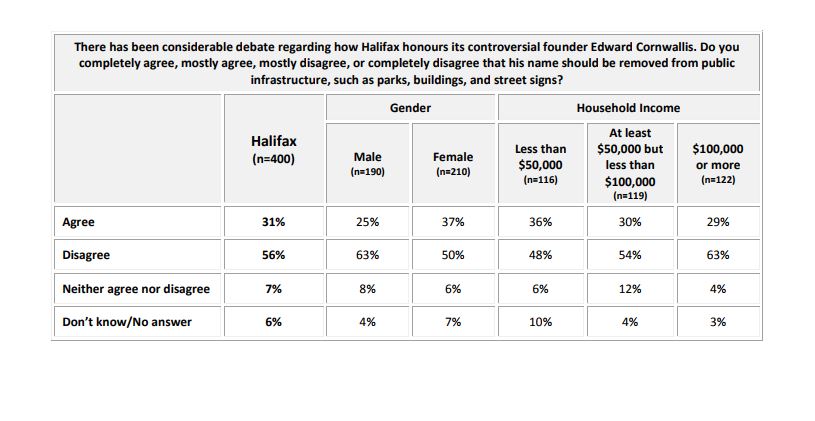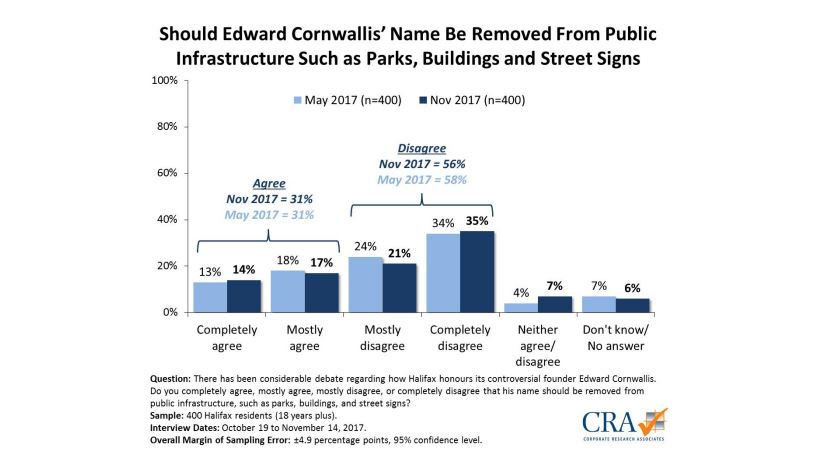A new survey reveals a majority of Halifax residents do not believe Edward Cornwallis’ name should be removed from public infrastructure.

The survey, conducted by Corporate Research Associates (CRA), found 56 per cent of respondents disagreed with the move, compared to 58 per cent when the last survey was conducted in May.
READ MORE: Edward Cornwallis considered: The man behind Halifax’s divisive debate
It also found that men and residents with higher household incomes were more likely to oppose removing Cornwallis’ name.
“Despite the continuing debate related to the call the remove the Edward Cornwallis name from public infrastructure, a clear majority of Halifax residents do not agree with such a decision,” said Don Mills, the chairman and CEO of CRA, in a news release.
Among the infrastructure named after the founder of Halifax is a city street, a river in the Annapolis Valley and a downtown park.

Get breaking National news
Notably, a large statue of Cornwallis in the park bearing his name has been the site of protests, rallies and vandalism.
WATCH: Halifax government covers controversial statue with drape to appease protesters

While some argue removing his name would be rewriting history, others argue Cornwallis is a symbol of colonial oppression — a man who issued a scalping proclamation against the province’s Mi’kmaq people.
The CRA survey, which surveyed 400 adult residents by phone, found 31 per cent of people agreed Cornwallis’ name should be removed. Seven per cent neither agreed nor disagreed and six per cent did not have an opinion.










Comments